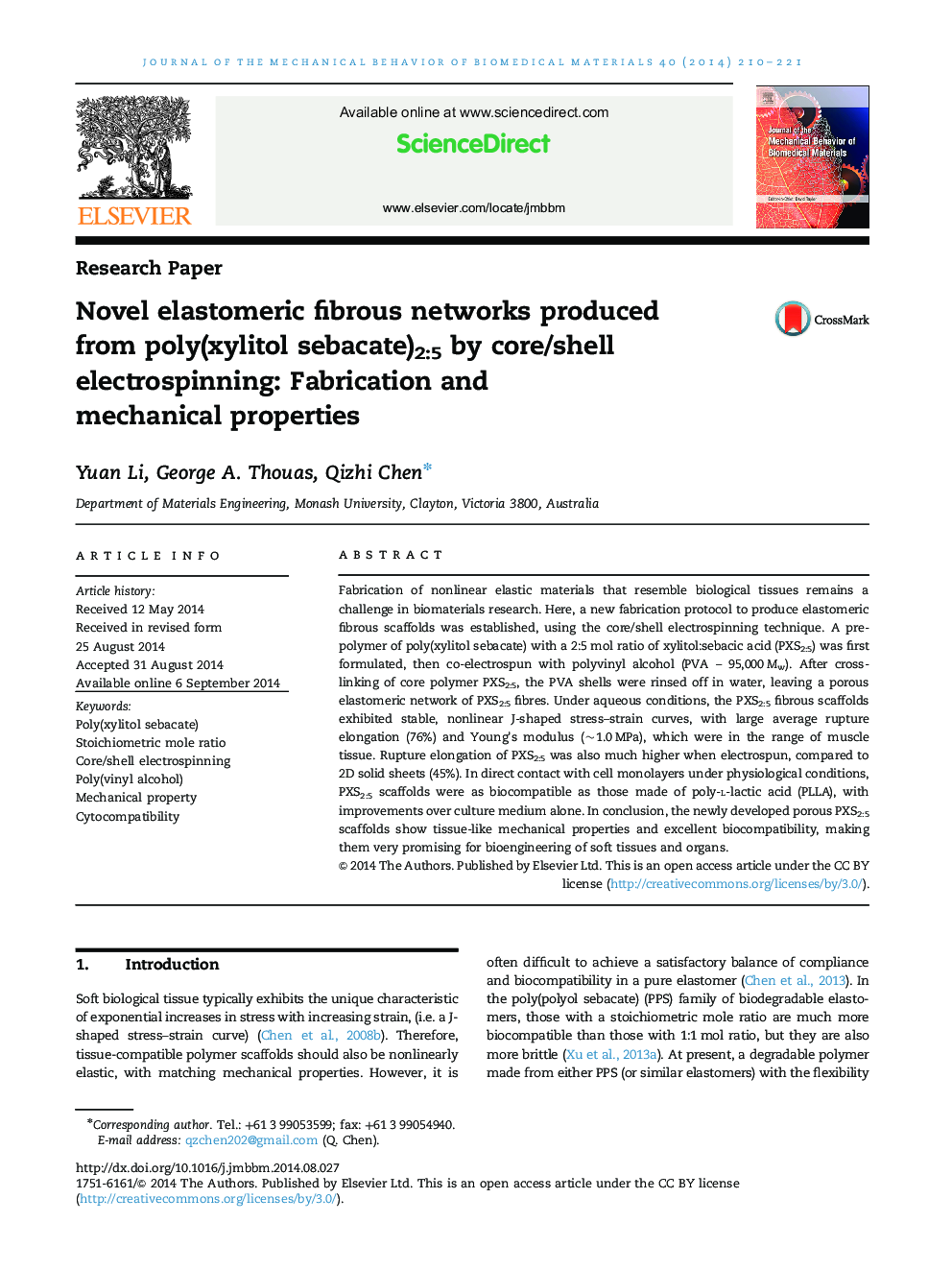| کد مقاله | کد نشریه | سال انتشار | مقاله انگلیسی | نسخه تمام متن |
|---|---|---|---|---|
| 7208679 | 1469105 | 2014 | 12 صفحه PDF | دانلود رایگان |
عنوان انگلیسی مقاله ISI
Novel elastomeric fibrous networks produced from poly(xylitol sebacate)2:5 by core/shell electrospinning: Fabrication and mechanical properties
دانلود مقاله + سفارش ترجمه
دانلود مقاله ISI انگلیسی
رایگان برای ایرانیان
کلمات کلیدی
موضوعات مرتبط
مهندسی و علوم پایه
سایر رشته های مهندسی
مهندسی پزشکی
پیش نمایش صفحه اول مقاله

چکیده انگلیسی
Fabrication of nonlinear elastic materials that resemble biological tissues remains a challenge in biomaterials research. Here, a new fabrication protocol to produce elastomeric fibrous scaffolds was established, using the core/shell electrospinning technique. A prepolymer of poly(xylitol sebacate) with a 2:5 mol ratio of xylitol:sebacic acid (PXS2:5) was first formulated, then co-electrospun with polyvinyl alcohol (PVA - 95,000 Mw). After cross-linking of core polymer PXS2:5, the PVA shells were rinsed off in water, leaving a porous elastomeric network of PXS2:5 fibres. Under aqueous conditions, the PXS2:5 fibrous scaffolds exhibited stable, nonlinear J-shaped stress-strain curves, with large average rupture elongation (76%) and Young׳s modulus (~1.0 MPa), which were in the range of muscle tissue. Rupture elongation of PXS2:5 was also much higher when electrospun, compared to 2D solid sheets (45%). In direct contact with cell monolayers under physiological conditions, PXS2:5 scaffolds were as biocompatible as those made of poly-l-lactic acid (PLLA), with improvements over culture medium alone. In conclusion, the newly developed porous PXS2:5 scaffolds show tissue-like mechanical properties and excellent biocompatibility, making them very promising for bioengineering of soft tissues and organs.
ناشر
Database: Elsevier - ScienceDirect (ساینس دایرکت)
Journal: Journal of the Mechanical Behavior of Biomedical Materials - Volume 40, December 2014, Pages 210-221
Journal: Journal of the Mechanical Behavior of Biomedical Materials - Volume 40, December 2014, Pages 210-221
نویسندگان
Yuan Li, George A. Thouas, Qizhi Chen,